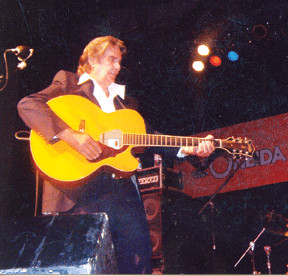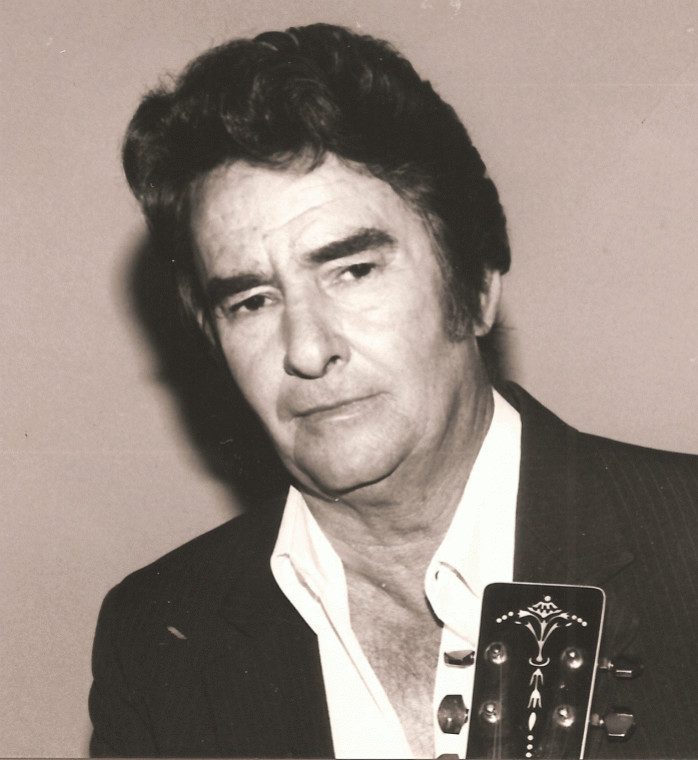Urban legend
Gonzales said goodbye to a country music legend last week. Singer/songwriter Al Urban, who composed tracks for Charley Pride as well as priceless gems of his own during his 60-year career, is being remembered as “ole country.”
Well known for his love of music, Urban picked up his guitar as a teenager and started his first band, “The Daybreakers,” in the early 1950s. Urban and his young friends then got a steady gig at The Log Cabin Inn, a hall just north of Luling.
Gary Schroeder, a close friend and admirer of Urban, remembers him with a special fondness that was forged like steel during a three-decade friendship.
“Al and I knew each other for over 30 years,” Schroeder says. “He and I would get bands together, and they would come out to my ranch and play our parties. He was also a DJ on KCTI radio.
“The song that really hit it off for him was actually a rockabilly tune called ‘Looking for Money,’ that he did really early in his career,” Schroeder says. “It was a far cry from the country and western stuff he later became known for.”
Recorded at Houston’s Gold Star Studio in 1956, the master tape of “Looking for Money” was delivered to a representative named Charlie Fitch, who agreed to release it on SARG records out of Luling.
“That single got Al national recognition,” Schroeder says.
The song was released on Nov. 30, 1956, and it quickly garnered positive reviews from Billboard magazine. It was a modest hit and sold fairly well.
From there, Urban jumped to bigger gigs like the Louisiana Hay Ride, which served as a springboard to radio airplay, bigger performance venues and a wider audience.
Urban eventually parted company with Fitch and formed his own label called Fang. The label was used to promote Urban’s new material, and he went on to record for other small labels like Tennessee and Kash.
By the 1970s, Urban had already developed a reputation for prolific songwriting.
“A certain management company out of Nashville said they had a guy they wanted Al to write for,” Schroeder recalls. “That guy’s name was Charley Pride.”
Urban wrote two songs for Pride called “I’m Beginning to Believe My Own Lies” and “When the Trains Come In.”
Also in the ’70s, Urban had success with a pair of songs called “The First Day of June” and “The Mirror Behind the Bar.” “Mirror” climbed to No. 3 in the charts.
“One thing that I’ve always found ironic was that he had a tremendous following overseas,” Schroeder says. “He had a lot of success over in Europe and Australia.”
The music business has become more and more of a corporate entity over the last few decades, and Schroeder depicts a more simple time when it was easier for a performer to get radio airplay.
“Al grew up in an era where you would cut a 45 record and ship it to a local DJ,” he says. “If the DJ liked it, he would play it on the radio. Sadly, it doesn’t work that way anymore. The big business executives now get the say-so when it comes to exposure.”
Urban’s last CD, “I Just Dropped In to Say Goodbye,” was another endeavor that both concluded and perpetuated his own brand of classic country.
“I consider myself very fortunate to be a part of Al’s last CD,” Schroeder says. “My wife and I did some of the artwork on that.”
Urban is remembered with an affection that transcends mere friendship and mortality, and reinforces his closeness with those dearest to him through his music. His fellow artist friends include the likes of Webb Pierce, Mel Tillis, Dotsy Brose, Charley Pride, Marti Brom and Ronnie Milsap.
“He was honest, straightforward and a bit of a procrastinator,” Schroeder says with a smile. “Material things didn’t mean much to him.”
“I grew up listening to Al, and when I finally got to play with him, it was an honor and a privilege,” says Gabe Gallardo, a local musician and friend of Urban. “He was really something special.”
“If you could say one thing about Al Urban, he’s ole country,” Schroeder says. “That’s what he is.”
Comments










